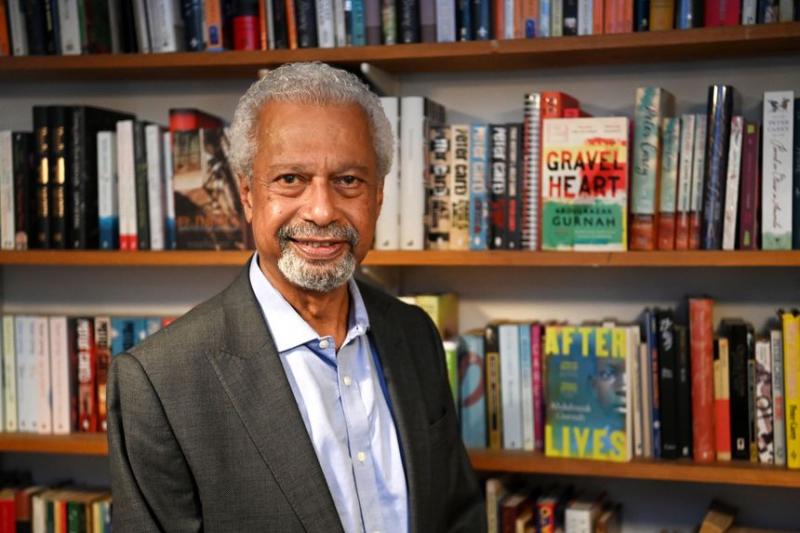The Nobel Prize in Obscure Literature
By: By Tunku Varadarajan



Another year in which the Nobel Prize for Literature was awarded to a writer I’ve never read—and I’m beginning to despair. Is the Swedish Nobel committee setting out to show me up as a philistine? I ask myself that question even as I declare that I’m a hungry reader and have what might be called an elite education. So a detachment from the matter at hand—fine (even difficult) novels and poetry—is not what ails me.
At least this year’s winner—Abdulrazak Gurnah, an Anglo-Tanzanian novelist from Zanzibar—has been on my to-read list for years. I’ve given priority to other, probably better African novelists, including some, such as Ngugi wa Thiongo, who haven’t yet found favor with the Swedes. At least I’d heard of Mr. Gurnah, unlike last year, when Louise Glück, a very recondite American poet, was foisted on an unsuspecting world as the lit laureate. Even in her own country, yawps of consternation were heard. (My biggest gain from the episode was to chance upon the German word Glückschmerz, which means sadness—or, in my case, indignation—over someone else’s success.)
But I still worry about my lack of reading: Of the 20 literature laureates awarded this century before Mr. Gurnah, I’d read only eight (and heard aloud the words of one, Bob Dylan ) at the time of the award. I’d simply not heard of—or, put another way, was totally ignorant of—10. I’d heard of two—the Frenchman Patrick Modiano and Austrian Peter Handke —but hadn’t read them.
Part of the problem is the insularity of Anglophone (particularly American) publishers, who tend to resist publishing foreign fiction in translation. Only 3% of literature published in America originates outside the English-speaking world. Yet lit-xenophobia isn’t the sole culprit. There is, after all, a torrent of writing in English, not all of it by thrusting youths who regard themselves as failures if they haven’t sold a novel by age 25. (A shout-out here to Archipelago Books, a Brooklyn publishing house 15 years old that specializes in translations of foreign fiction. They have printed “close to 200 books from more than 35 different languages.”)
The problem has another source: the Swedish high priests who sit in judgment on the world’s literature. This Nordic cabal seems to take a peculiar, even indecent, pleasure in selecting especially obscure candidates to award. Tomas Tranströmer, anyone? He was the seventh Swede to win the prize since its inception in 1901, two more than Russia, which, even allowing for the ravages of communism on the mind, is a travesty.
This fetish for obscurity isn’t something the judges can indulge in with the science prizes, which call for some empirical consensus. But with literature, the judges have their hands in the cookie jar. Like children unleashed, they thumb their noses at the lingua franca world, giving us instead lugubrious Poles and Romanians whom few have read even in their own countries.
In the end, it is the judges’ money. They can spend it as they please. They’re insulated from the market. Laughing at their choices doesn’t seem to work. The civilized and stoical reader will allow himself a quiet chuckle, then go online and order a book by the latest laureate. This isn’t always easy. I had a devil of a time finding Mr. Gurnah’s books for sale. They were so scarce that vendors marked them up with gusto.
Now that’s the market for you.
Mr. Varadarajan, a Journal contributor, is a fellow at the American Enterprise Institute and at New York University Law School’s Classical Liberal Institute.



A fetish for obscurity?
Maybe we need a new committee?
I would not worry about it, there are many other publishing prizes that carry far more weight and likely enrich the authors far more through sales.
If you wouldn't worry, that means we need not concern ourselves with it/s
That's your take on what I posted. Have a cup of Pollyanna form time to time. Were I good enough to be published I would prefer either Booker or Pulitzer on the cover over Nobel ... Hell, I'd even consider Oprah's tag.
You forgot to capitalize 'we'. "/s"
BTW, y'all have the Neustadt Prize a.k.a. ‘The Oklahoma Nobel’ down there.